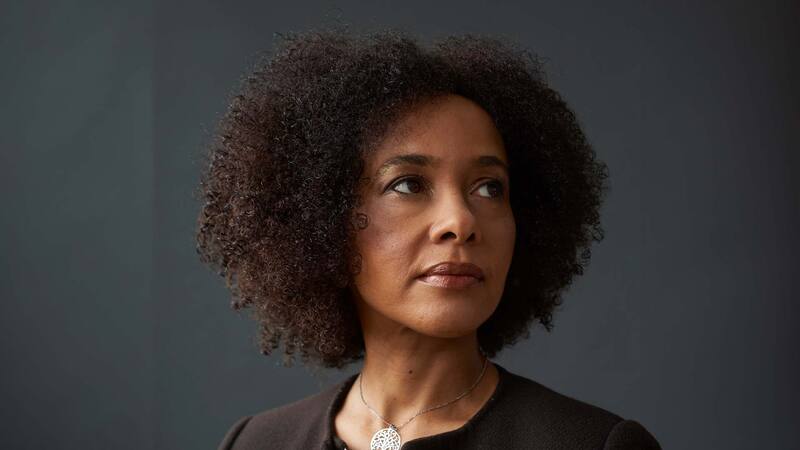You are viewing your 1 free article this month. Login to read more articles.
Editors predict feel-good reads will trump ‘pandemic lit’—for now
As the world adjusts to the devastating impact of the coronavirus pandemic, many editors and agents are forecasting readers will be seeking solace in “uplifting” and “escapist” fiction, from soaring romances to gripping thrillers, in a bid for distraction in a post-Covid-19 world.
Orenda Books founder Karen Sullivan told The Bookseller: “It’s difficult to envision what will appeal post-Covid-19; however, the current trend for uplifting reads is bound to continue, with readers looking for distraction and escape from a fairly dire reality—warm humour, salvation, [stories of] unexpected success, happiness, or beating the odds release tension and provide solace.”
She added that although sales of crime titles are down slightly, she expects a resurgence: “A staple diet of Netflix thrillers should increase the appetite for more of the same but, perhaps most importantly, crime has always done well in darker times, perhaps because readers are able to take comfort in the fact that their own lives seem comparatively less bleak. A lot of people have mentioned that they are struggling to read at the moment, with so much going on in their minds and homes, and an overwhelming concern about health, finances and the future dominating. Gripping, compelling reads are most likely to help overcome this.”
Granta editorial director Anne Meadows pictured left said her feeling is that readers will want “books they can really dwell in and escape into”, for example, those “taking place in the past, or in fantasy worlds, or that have a really strong degree of realism to them, to immerse [readers] in people’s problems or lives and provide escapism.” Agent Harry Illingworth concurred it was all about what readers will find “comforting”, adding: “I think a lot of readers have started comfort reading, whether that comfort is from knowing the author or being in a preferred genre, and we’ll be seeing more of this.”
Predicting that readers will be flocking to “feel-good” narratives, Curtis Brown agent Sheila Crowley said: “If you look at one of the most successful books of the last year, the Charlie Mackesy book, that was a big success for Waterstones and other retailers and that book will continue to sell through the pandemic because it’s a book that makes you feel good. Will there be copycats of that? No doubt there will.
“Some people who are writing fiction will be moving a 2020 setting to 2019 because they don’t want to talk about lockdown. There may not be a lot of fiction set in 2020 because no one wants to deal with the subject matter!”
Some editors believe books engaging with the issues raised by the pandemic will follow—if not right away—and that in the meantime those exploring the value of “human connection” could be particularly coveted in the context of social distancing measures.
While anticipating “escapist fiction… whether light or dark” will prove popular, Frankie Gray pictured left, publishing director of Transworld, said: “We’re all more aware than ever of the importance of human connection and how invaluable our closest relationships are in nourishing us emotionally. I think there will continue to be an appetite for books that do the same: books that help us to feel hopeful and uplifted, but that also celebrate friendships or family relationships.”
Searching for resolution
Gray also saw an appetite for “fiction that provides the resolution and certainty that our lives lack at the moment”, saying: “It’s no surprise to me that people are turning to Lee Child and Jack Reacher at this time.” She added: “I do think there will come a time when readers will feel ready for books that feature the events of this year… Books can help us to make sense of the world, to process our own experiences and to empathise, and I think many of us will be looking for that guidance and solace in relation to this period as much as—and perhaps, in due course, more than—any other.”
Sullivan said she had already seen a move towards “pandemic and medical thrillers”, claiming “readers [are] attempting to make sense of an unknown world and finding parallels of our almost-dystopian current reality in fiction, where they can be overcome. No doubt this will continue,” she said.
Sam Eades, publishing director of Trapeze, said editors have been seeing an influx of non-fiction submissions, split between big-hitters for autumn and spring schedules, and “timely submissions in reaction to the crisis”.
“Every week at acquisitions [meetings], my non-fiction colleagues are bringing new business, and it very much appears business as usual,” she said. “The fiction submissions have been slower, and it feels a lot more cautious. This unprecedented situation has meant I have been reading in a different way and being drawn to different submissions that might not have caught my eye in the same way during the hectic pre-[London Book]fair run-up.”
Eades added: “There is a lot of uncertainty around what consumers will want to be reading in 12 months’ time. Should writers be re-writing their books to reflect the coronavirus? Or will readers want pure escapism? The success of [The Flatshare author] Beth O’Leary, who is currently sitting in the paperback, e-book and hardback bestseller lists, suggests to me that people will want soaring and uplifting stories about love, connection and hope.”
But Katy Loftus, publisher at Viking, noted that anticipating readers’ changing tastes in the months to come could well be as “impossible as it ever was. As acquiring editors we could tie ourselves in knots over whether people will want uplifting or comforting fiction; whether they will want to be reminded of the time we’re in now or not at all; whether indeed readers will have the money to buy books,” she said. “Better to focus on the questions that never go out of date: does this writer make me turn the pages?”
Taking risks
Curtis Brown chair Jonny Geller also urged publishers not to play safe in their choices. Speaking to The Bookseller in last week’s #BookChat Twitter conversation, he warned publishers against only buying “must reads”, saying: “This is of course what we all look for, but if you have that mindset as a commissioner it makes you very cautious. Our job is to risk everything each throw of the dice. Agents risk their time and... publishers risk their investments. Either way, this isn’t the time to go for sure bets only.”
Even harder to predict, editors say, could be where publishing is heading as an industry. “Books have usually been fairly resistant to downturns in the economy, providing comparatively inexpensive entertainment, but I think price will become increasingly important, particularly for e-books, and there will probably be an impact on hardback sales too. We’ll need to get to grips with that,” said Sullivan. “The truth is that none of us really has any idea where we are headed as an industry, with print sales virtually non-existent and an almost complete absence of bricks-and-mortar retailers. It’s a waiting game for us all.”
Illingworth added: “Publishers are perhaps missing a trick at the moment. Losing bookshops is a huge blow, but there is a huge appetite for books at the moment, and I think we could be doing more to directly reach those readers. That said, this is all so new that I’m confident we will find new and innovative ways to publish, and with titles moving out of the coming months,hopefully the recently published books that have already been affected by the pandemic may get another opportunity.”
Eades said: “While sales have been impacted through store closures, reduced footfall and stock/availability issues, I’ve been heartened by how resilient the fiction market has been, with year-on-year growth. Waterstones has been driving business online with great success, and I hope it retains these new customers in the future. I’m in awe of the creativity and collaboration of independent bookshops, which are doing everything they can to encourage direct orders and keep their businesses alive in incredibly challenging times. The events programme at [Twitter account] @homewith4indies and the individual recommendation service provided by [Lytham-st-Annes bookshop] @storytellersinc have particularly stood out.”
Meanwhile, Crowley noted: “I think launching d√©buts, until shops are back up properly, will be challenging. Some people will be moving d√©buts into next year.”













